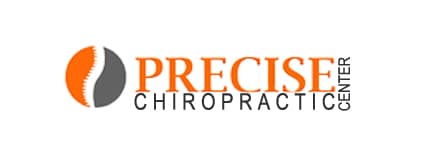Softwave Therapy or Traditional Pain Management: Which Offers the Best Relief for Your Pain in Lake in the Hills, IL

Pain is an inevitable part of life, but suffering doesn't have to be.
If you're tired of living with persistent pain, there's a potential game-changer in your pursuit of pain relief: Softwave Therapy in Lake in the Hills, IL.
In this comprehensive blog post, we will focus on the transformative power of Softwave Therapy and how it compares to Traditional Pain Management.
By the end of this article, you'll gain a clearer understanding of which approach, Softwave Therapy or Traditional Pain Management, can offer you the best relief for your pain.
Whether you're dealing with chronic pain or seeking a solution for acute discomfort, read on to make an informed decision that could significantly enhance your well-being.
Exploring Softwave Therapy
Softwave Therapy, also known as extracorporeal shockwave therapy (ESWT), is a non-invasive treatment option that has gained popularity for its effectiveness in managing various types of pain.
Overview of Softwave Therapy: Principles and Techniques
Let's start with the basics. Softwave Therapy harnesses advanced technology to deliver focused acoustic waves to specific areas of your body.
These waves are like gentle superheroes that work at a cellular level, activating your body's natural healing mechanisms. The result?
- Tissue repair
- Reduced inflammation, and
- Improved blood circulation in the targeted area.
How Softwave Therapy Alleviates Pain and Promotes Healing
Softwave Therapy's effectiveness in pain management lies in its ability to target the root causes of discomfort.
Pain Management: The acoustic waves stimulate the release of growth factors, which promote the regeneration of damaged tissues and nerves. This leads to a reduction in pain intensity and an improvement in overall functionality.
Collagen Production: Softwave Therapy also triggers the production of collagen, a vital component for tissue repair and regeneration. As it aids in restoring damaged connective tissues, this can be particularly beneficial for individuals suffering from chronic conditions like:
- Tendonitis
- Plantar Fasciitis
- Knee Pain
- Joint Pain, and More
Reduced Inflammation: The therapy not only addresses pain but also targets inflammation.
By decreasing inflammation in the affected area, Softwave Therapy helps to alleviate swelling, which can further contribute to pain reduction and improved mobility.
ESWT is a safe and effective treatment option for tendon and other musculoskeletal conditions in many well-conducted research studies. It is a non-invasive approach that has proven to be beneficial.
Now that you have a general idea about what SoftWave Therapy is, let's talk a bit about the traditional pain management options.
Traditional Pain Management
When it comes to managing pain, traditional pain management approaches have been relied upon for years. These established methods encompass a range of surgical and nonsurgical procedures that aim to alleviate acute and chronic pain.
Let's explore some of the commonly used traditional pain management methods:
Medication: Pain medication is often prescribed to manage pain symptoms. This may include over-the-counter pain relievers such as nonsteroidal anti-inflammatory drugs (NSAIDs) or prescription medications like opioids. Pain pills can provide temporary relief and help individuals manage their pain levels.
Injections: In some cases, injections may be recommended to provide targeted pain relief. These can include corticosteroid injections to reduce inflammation or nerve blocks to alleviate specific nerve-related pain.
Surgery: In situations where conservative treatments have been exhausted or deemed ineffective, surgical intervention may be considered. Surgical procedures aim to address the underlying cause of the pain and restore function. It is important to note that surgery is typically reserved for cases where less invasive options have been unsuccessful.
Alternative Therapies: Alternative therapies, such as chiropractic care, acupuncture, or physical therapy, are also popular alternative treatment options. These approaches focus on natural and holistic methods to address pain, improve overall well-being, and promote healing.
Comparative Analysis: Softwave Therapy vs. Traditional Pain Management
Now that we have gained a better understanding of Softwave Therapy and traditional pain management methods, it's time to delve into a comparative analysis. Let's explore further:
SoftWave Therapy: Benefits and Potential Risks
Benefits: Softwave Therapy offers several notable advantages, including:
- Non-Invasive and Non-Surgical: Softwave Therapy provides a non-invasive alternative to surgery, minimizing the risks associated with invasive procedures.
- Minimal Side Effects: Compared to traditional pain management methods, Softwave Therapy has minimal side effects, making it a safer option for many patients.
- Potential for Long-Lasting Results: By stimulating the body's natural healing processes, Softwave Therapy has the potential to provide long-term pain relief and improved functionality.
Softwave Therapy has demonstrated promising results in reducing pain, promoting tissue repair, and improving overall well-being. Many individuals have reported significant improvements in their pain symptoms and quality of life.
Potential Risks: Softwave Therapy is generally considered safe; however, as with any medical treatment, there may be some potential risks or contraindications depending on your health conditions.
It is crucial to consult with a qualified healthcare professional to determine if Softwave Therapy is suitable for your specific condition.
Traditional Pain Management: Benefits and Potential Risks
Benefits: Traditional pain management methods have a long history of use and have provided relief for many individuals. Some benefits include:
- Well-Established Treatment Options: Traditional methods have been extensively researched and implemented in pain management practices.
Wide range of options: Traditional pain management offers various approaches, allowing for tailored treatment plans based on individual needs.
Potential Risks: Traditional pain management methods may carry certain risks and considerations:
- Medications can have side effects.
- Medication can also have risks of dependency.
- Invasive procedures and surgeries entail inherent surgical risks.
- Significant downtime may be required for recovery after certain surgeries or procedures.
It is important to discuss potential risks and benefits with a medical provider before beginning any type of pain management program. It is also important to consider all available treatment options to make an informed decision
Ultimately, the decision between Softwave Therapy and traditional pain management should be based on a comprehensive evaluation of your circumstances. Considering factors such as safety, long-term results, personal preferences, and effectiveness can help you make the best decision for your specific needs.
Revolutionize Your Pain Relief with Precise Chiropractic Softwave Therapy in Lake in the Hills IL
Say goodbye to persistent pain and hello to relief and improvement with Precise Chiropractic Softwave Therapy. Our experienced team provides safe, effective treatment tailored to your individual needs for improved mobility and quality of life.
We understand the importance of finding a pain management solution that works for you. That's why at Precise Chiropractic, we take the time to listen to your individual needs and customize a treatment plan that will best
Our advanced therapy has a success rate of 90% in just 2 sessions!
Take the first step towards a pain-free future by scheduling your Softwave Therapy session at Precise Chiropractic in Lake in the Hills. Contact us at (847) 669-6888 or visit our website to unlock the transformative benefits of our therapy today.
OFFICE HOURS
Monday
8:30am - 10:30am
4:00pm - 6:30pm
Tuesday
4:00pm - 6:00pm
Wednesday
8:30am - 10:30am
4:00pm - 6:30pm
Thursday
4:00pm - 6:00pm
Friday
8:30am - 10:30am
Saturday
8:30am - 10:30am
Precise Chiropractic Center
4581 Princeton Lane Suite 119
Lake in the Hills, IL 60156
(847) 669-6888

